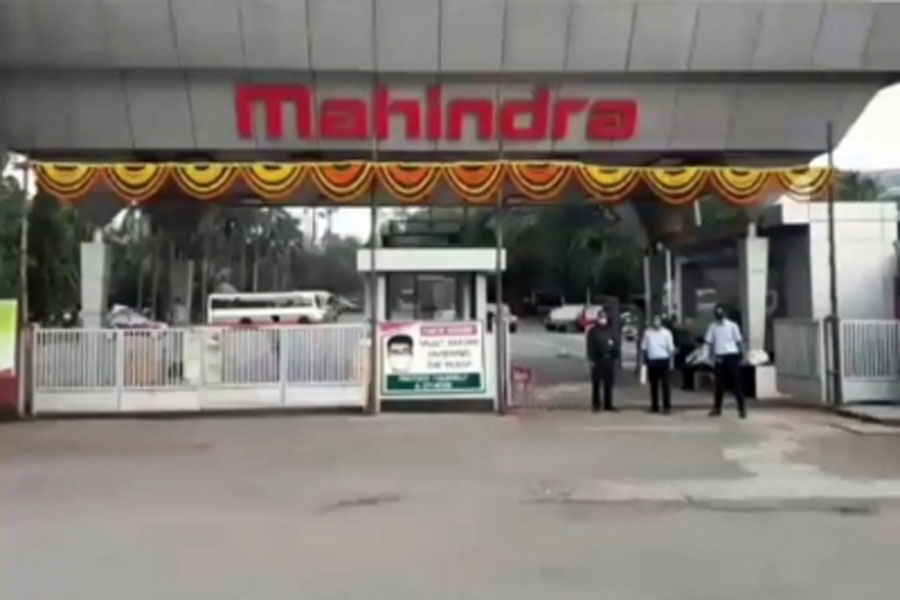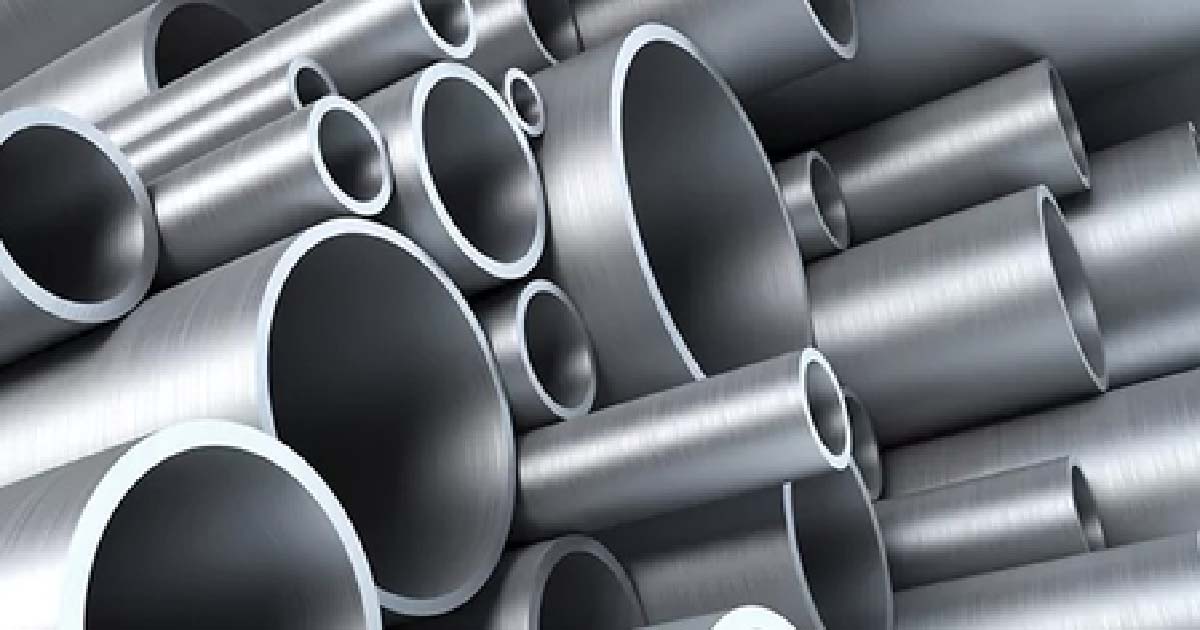Business
Mahindra & Mahindra to hive off EV car business, ropes in BII as equity partner

India’s automobile major Mahindra & Mahindra Ltd (M&M) will hive off its assets relating to the four-wheeler passenger electric vehicles to a new company in which the British International Investment (BII) will invest upto Rs 1,925 crore for 2.75 per cent to 4.76 per cent stake.
The four-wheeler electric vehicle business is valued at Rs 70,070 crore and will roll out electric sport utility vehicle (SUV) first.
The M&M said it would also invest Rs 1,925 crore in the to be incorporated electric vehicle company (EVCo) and the investment by both the parties will happen in two tranches based on milestones.
The first tranche will be Rs 1,200 crore each to be brought in not later than 30.6.2023 and the second tranche will be of Rs.725 crore each in FY24.
The company’s Board on Thursday approved the hiving off and the investment by BII and M&M.
The sale/hiving off of the EV business is expected to be completed not later than 30.6.2023, the company said.
According to M&M, the BII will invest in Compulsorily Convertible Preference Shares of EVCo which would result in the latter having a stake in the range of 2.75 per cent to 4.76 per cent.
According to M&M, the company has invested about Rs 400 crore in the four-wheeler passenger EV business and its net worth is not tracked separately.
Last year, M&M did not generate any revenue from this business.
The consideration for sale/transfer/hiving off of the identified assets of the four wheel EV business will be settled by the EVCo on arms’ length basis, M&M said.
The EVCo will be a wholly owned subsidiary of M&MA it does not belong to the promoter/ promoter group of the company.
However, the proposed EVCo will significantly leverage the manufacturing capabilities and product development of M&M as also the ecosystem of suppliers, dealers and its financiers.
The M&M also said the total capital infusion for the EVCo. is envisaged to be approximately Rs 8,000 crore/USD 1 billion between FY 24 and FY 27 for the planned product portfolio.
M&M and BII will work jointly to bring other like-minded investors in the EV Co. to match the funding requirement in a phased manner.
“The Mahindra Group aims to be Planet Positive by 2040. Mahindra has been a pioneer in the electric vehicles space, and we are confident we will be the leaders in the electric SUV market in the future,” Dr Anish Shah, MD & CEO, M&M said.
“BII’s anchor investment will be key to attracting additional sources of private capital into this exciting venture with the Mahindra Group,” Nick O’Donohoe, CEO, BII said.
According to Rajesh Jejurikar, Executive Director – Auto & Farm Sectors, M&M, the group will share its vision on the electric sport utility vehicle (SUV) space, product, technology and platform strategy on August 15, 2022 in UK followed by a reveal of the electric XUV 400 in September 2022.
“We would expect between 20 per cent to 30 per cent of Mahindra SUVs being electric by 2027,” he said.
Business
Commercial LPG cylinder prices reduced across metros from November 1

New Delhi, Nov 1: State-run oil marketing companies have reduced commercial LPG cylinder prices across metros, offering a slight relief to businesses, starting from Saturday.
The move will provide marginal relief to thousands of small and medium-sized businesses.
According to the latest revision announced by state-run oil marketing companies (OMCs), the 19-kg commercial LPG cylinder will now cost Rs 1,590.50 in Delhi, reflecting a Rs 5 cut from the previous rate of Rs 1,595.50.
With the highest drop of Rs 6.50 per cylinder among the metros, the charge in Kolkata will now be Rs 1,694 per cylinder. Chennai will now charge Rs 1,750 (down Rs 4.50), while Mumbai now charges Rs 1,542 (down Rs 5).
For businesses that depend significantly on LPG for their everyday operations, like restaurants, hotels, and catering services, the most recent revision provides a small reprieve following a hike of Rs 15.50 that was put into effect late in September.
However, domestic LPG prices have not changed and are the same in every city.
Earlier in September, OMCs had reduced the price of commercial LPG gas cylinders by Rs 51.50. Following the revision, a 19-kg commercial LPG cylinder in Delhi was available at Rs 1,580.
Earlier, OMCs had reduced the price of a 19 kg commercial LPG gas cylinder by Rs 33.50. Before that, prices had been reduced by Rs 58.50 on July 1.
Earlier in June, oil firms had announced a Rs 24 cut for commercial cylinders, setting the rate at Rs 1,723.50. In April, the price stood at Rs 1,762. February saw a small Rs 7 reduction, but March reversed this slightly with a Rs 6 increase.
Meanwhile, the Centre had announced to provide 2.5 million free LPG connections under the Pradhan Mantri Ujjwala Yojana (PMUY) during the festival season.
Business
Nifty, Sensex end 4-week winning streak amid profit booking

Mumbai, Nov 1: Indian equity benchmarks ended their four-week winning streak, closing marginally lower this week amid profit-booking and mixed global cues.
Benchmark indices Nifty and Sensex dipped 0.65 and 0.55 per cent during the week to close at 25,722 and 83,938, respectively.
Market optimism was bolstered during the first three sessions by positive domestic economic data and China’s approval for few Indian companies to import rare earth magnets.
However, sentiment turned cautious after the US Federal Reserve cut its benchmark interest rate by 25 basis points to the 3.75 per cent–4 per cent range.
“India’s industrial output rose 4 per cent YoY in September 2025, supported by strong manufacturing activity. The US Federal Reserve hinted that the 25-bps cut might be the final one in 2025, which dampened hopes of further near-term easing,” said Ajit Mishra- SVP, Research, Religare Broking Ltd.
Further, steady corporate earnings and continued FII inflows through October helped cushion the downside, he added.
Metals, energy and realty stocks were the major contributors to the rally, while auto, pharma and IT stocks experienced profit-taking.
“While PSU banks surged on reports of a potential hike in foreign investment limits, metal counters gleamed on renewed optimism after China’s pledge to rein in steel overcapacity and signs of progress in US-China trade talks,” added Vinod Nair, Head of Research, Geojit Investments Limited.
Analysts said that capital market stocks lost momentum as SEBI’s proposed overhaul of TER structures weighed on sentiment.
Support for the Nifty is currently located close to the 25,600 zone and the 25,400 zone, while resistance is seen around 26,100, analysts said.
In the upcoming holiday-shortened week, investors are looking for cues from the final readings of the HSBC Manufacturing PMI and HSBC Services and Composite PMI data.
Investors are also keen on the India-US trade deal and trends in developed markets, while on the earnings front, several index heavyweights are set to announce their quarterly results.
Business
India aims 300 million tonnes of crude steel production capacity by 2030

New Delhi, Oct 31: India aims to achieve 300 million tonnes of crude steel production capacity by 2030, Union Minister of State for Steel, Bhupathiraju Srinivas Varma, said on Friday.
In a meeting with Sara Modig, State Secretary to Minister for Energy, Business and Industry, Sweden, here, in presence of Swedish Ambassador to India Jan Thesleff and other officials, the minister highlighted India’s growing steel sector, driven by visionary leadership of Prime Minister Narendra Modi.
Notably, India’s domestic steel demand is growing at an impressive 11-13 per cent, fuelled by large-scale infrastructure projects, while global demand faces a slowdown, according to Steel Ministry.
The discussions were held to explore collaboration opportunities in the field of research and development in Green Steel production and other advanced technologies to reduce carbon emissions.
Varma reaffirmed the invitation extended to Sweden to participate in Bharat Steel 2026, an International Conference-cum-Exhibition dedicated to the steel industry, scheduled to be held on April 16–17, 2026, at Bharat Mandapam, New Delhi.
Meanwhile, the growth rate of India’s eight core industries was recorded at 3 per cent in September this year compared to the same month of the previous year, with the steel and cement sectors recording strong growth during the month, data released by the Commerce and Industry Ministry showed.
Steel production surged by a robust 14.1 per cent in September compared to the same month of the previous year on the back of increased demand from big-ticket infrastructure projects being carried out by the government. The cumulative growth of steel during April to Sept of 2025-26 increased by 11 per cent over the corresponding period of the previous year.
The government imposed a 12 per cent temporary safeguard duty on certain steel imports in April 2025 to protect the domestic market. These measures follow previous actions and are part of ongoing efforts to safeguard the industry while promoting self-reliance under initiatives like ‘Make in India’.
-

 Crime3 years ago
Crime3 years agoClass 10 student jumps to death in Jaipur
-

 Maharashtra1 year ago
Maharashtra1 year agoMumbai Local Train Update: Central Railway’s New Timetable Comes Into Effect; Check Full List Of Revised Timings & Stations
-

 Maharashtra1 year ago
Maharashtra1 year agoMumbai To Go Toll-Free Tonight! Maharashtra Govt Announces Complete Toll Waiver For Light Motor Vehicles At All 5 Entry Points Of City
-

 Maharashtra1 year ago
Maharashtra1 year agoFalse photo of Imtiaz Jaleel’s rally, exposing the fooling conspiracy
-

 National News1 year ago
National News1 year agoMinistry of Railways rolls out Special Drive 4.0 with focus on digitisation, cleanliness, inclusiveness and grievance redressal
-

 Maharashtra12 months ago
Maharashtra12 months agoMaharashtra Elections 2024: Mumbai Metro & BEST Services Extended Till Midnight On Voting Day
-

 National News1 year ago
National News1 year agoJ&K: 4 Jawans Killed, 28 Injured After Bus Carrying BSF Personnel For Poll Duty Falls Into Gorge In Budgam; Terrifying Visuals Surface
-

 Crime1 year ago
Crime1 year agoBaba Siddique Murder: Mumbai Police Unable To Get Lawrence Bishnoi Custody Due To Home Ministry Order, Says Report












